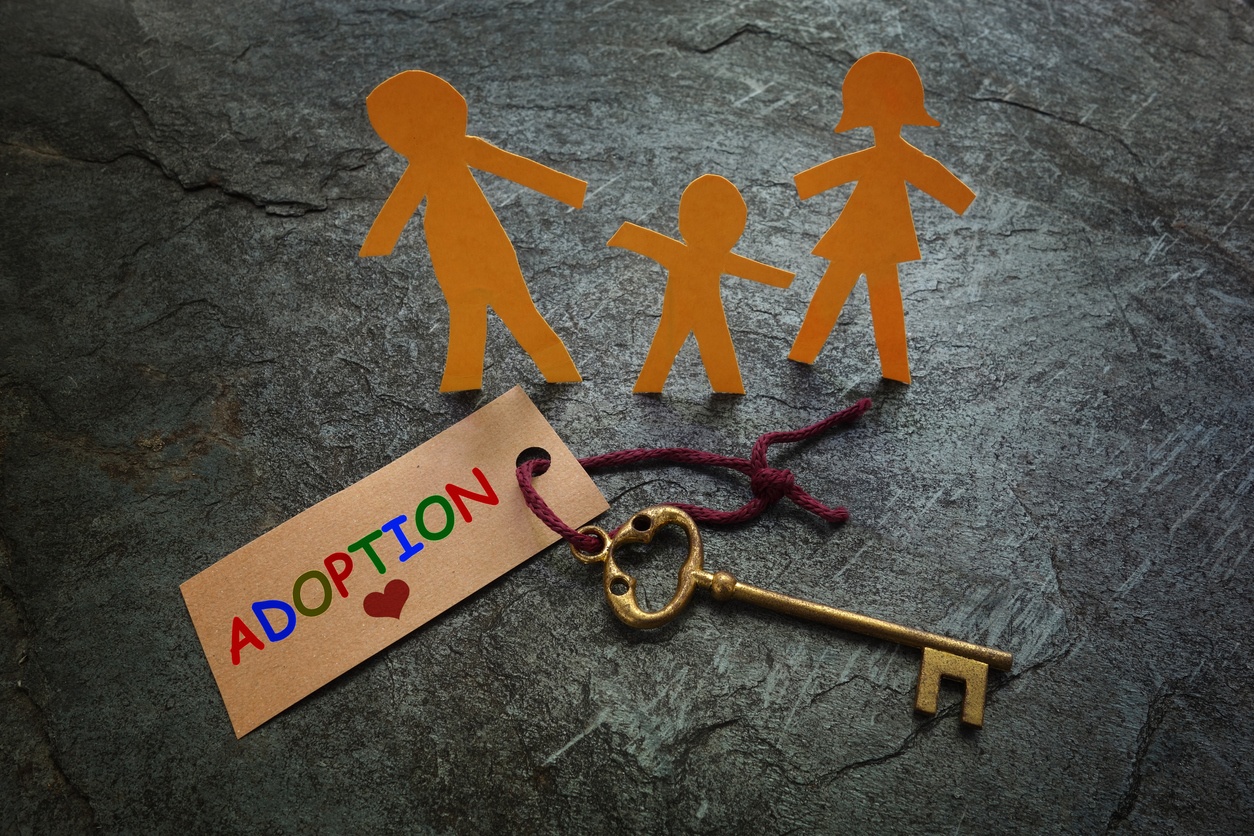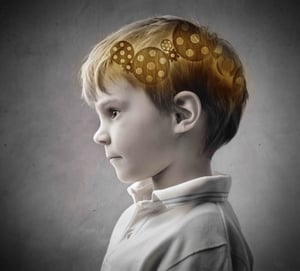
If you are an adoptee or adoptive parent you may be familiar with the term "adoption trauma." We deal with all forms of trauma as underlying causes of addiction at The Clearing, and what we know is that what is traumatic for one individual, isn’t for another. It’s all about how each person holds an event in our memory and consciousness.
Adoption is no different in terms of its traumatic potential.
Many adoptees make the transition seamlessly.
Others, no matter how loving and supportive the adoptive parents, may struggle with mental and emotional issues.
The most common root issues are fear of abandonment and issues around trust, but this can manifest in many different behaviors as one progresses through life.
And yes, one of the ways is through addiction.
What is Adoption Trauma?
Let’s start with a definition of adoption trauma.
Adoption trauma is the stress felt by an infant upon the separation from the birth mother that results in persistent mental and emotional health issues, such as depression, anxiety, fear of abandonment and issues around trust, later in life.
Here’s what Nancy Verrier, author of The Primal Wound, says about adoption trauma:
“Whether adopted from birth or later in life, all adopted children have experienced some degree of trauma. Trauma is any stressful event which is prolonged, overwhelming, or unpredictable.“
When people refer to the word "trauma," there are a couple of different meanings that come to mind.
There’s the kind of trauma that you incur on your physical body, as one might experience in a car accident. And then there’s mental and emotional trauma, as one might experience as a result of an experience such as the death of a loved one, or even the effects of childhood experiences such as bullying.
The latter is not as measurable on the outside.

Mental and emotional trauma is something that was shocking or deeply upsetting to you personally. And what is emotionally traumatic to you may not be to someone else. You can have an identical twin go through the same experience, and one of you will register it as traumatic, and one of you won't.
That is the mystery of trauma. It’s not about what happened but rather about how you took it in.
So what could be traumatic about adoption? Isn't adoption a beautiful thing?
Absolutely. Yes. It certainly can be. It can be a lifeline, and an amazing opportunity for both adopted parents and adoptees alike.
Is Adoption Trauma a Real Thing?
But while Adoption can be a lifeline and a tremendous joy, the traumatic impact in some cases is well documented.
Verrier goes on to say, “Scientific research now reveals that as early as the second trimester, the human fetus is capable of auditory processing and in fact, is capable of processing rejection in utero. In addition to the rejection and abandonment felt by the newborn adoptee (or any age adoptee for that matter), it must be recognized that the far greater trauma often occurs [due to the fact that the newborn mind-body system] is incapable of processing the loss. Far beyond any cognitive awareness, this experience is stored deep within the cells of the body, routinely leading to states of anxiety and depression for the adopted child later in life.”
“...at some level, [adoptees] ‘remember’ the trauma of adoption, even if it isn’t conscious.” — Joe Koelzer, The Clearing
According to Joe Koelzer, co-founder of The Clearing, “I can just tell you there are a significant number of adopted people that have come here with dual diagnosis issues, and at some level, they ‘remember’ the trauma of adoption, even if it isn’t conscious."
Adoption Trauma Through the Lens of Childhood Developmental Psychology

Developmental psychology looks at how we grow emotionally and psychologically at various development stages.
According to developmental psychologist Erik Erikson’s theory of psychosocial development, humans progress emotionally through eight different developmental stages.
The first of these stages is the Infant stage, in which we develop our sense of trust.
In this stage, you're establishing whether you trust people in the world and if you trust yourself and your abilities, and you're going to carry those lessons with you through the rest of your life on a subconscious level. Obviously most of us don't remember back to when we were newborns or even three-year-olds. But you're nonetheless learning these lessons, and you're learning to interpret the world through a certain set of eyes.
In other words, during the most formative years for learning trust, adopted children have their only intimate relationship severed.
And when the separation occurs suddenly, after the mother-child bond has been established (this process begins in the womb and continues after birth), the trauma can be more impactful.
How Do I know If Adoption Trauma is Behind My Emotional and Behavioral Issues?
Remember we said that people develop their sense of trust between 0 and 3 years of age?
At the next stage, between the ages of 3 and 5, children develop their sense of initiative. Between five and 12, self esteem. And between 12 and 18 we formulate our sense of identity.
Since trust is foundational, if a person has traumatic events happening during the infant stage, it can really hinder their ability to fully develop at any one, or all, of the age stages.
When people say they have issues around trust and worthiness, the question is, when did it start? According to Koelzer,
“We try and trace it back to the first time they remember feeling this way. If the answer is, ‘I've always felt this way,’ this is code for having happened pre-cognition or in the infant stage of development where we can be more certain it may be related to adoption trauma.”
Adoption and Addiction
 All trauma has the ability to manifest in mental and emotional health issues when left unhealed.
All trauma has the ability to manifest in mental and emotional health issues when left unhealed.
Fear, depression, anxiety, self-loathing...are all incubators for substance abuse and addictions of varying kinds. It isn’t limited to drugs––anything that alters one’s mood temporarily in order to numb the emotional pain can act as the drug, whether that’s food, or sex, or gambling, or whatever.
For example, these feelings of worthiness or abandonment can exacerbate over time and become meta issues, which we sometimes refer to as “stackers.”
They are things that come up over and over in a person’s life because they are unresolved, and they build upon each other.
Over time, as a person matures, perhaps the fear of abandonment turns into codependency in relationships. And what happens when I’m rejected again? Maybe i turn to sexual promiscuity or porn. Or maybe I do the opposite and shut out emotion altogether and turn to workaholism.
However a person chooses to numb, the effect is short lived, and cost is contentment, joy, and true intimacy.
Begin the Healing Process After Adoption Trauma
So, how do you heal from something you’ve been carrying literally your entire life?

You want to work with a therapist who specializes in emotional level work.
Our favorite tool here at The Clearing is something called Gestalt Therapy. This is where we give our feelings a voice. It involves taking the feeling that you have today, and following the energy back to the first time you remember feeling that way.
You want to then work with the emotional part of me that first experienced this, see what that emotional aspect needs to feel safe and loved and follow through on that need. You are the only person who can support and heal your traumatized aspects.
Digging deep into the emotional level stuff takes courage. We typically prefer to try to think our way out of these issues, because we are better at working at the mental-level...we want to understand things.
Unfortunately we can’t think our way out of an emotional issues, we have to feel our way through it.
We feel what we feel.
Emotional level issues have no requirement that they be logicial or rational.
Logic and rationality are mental level constructs only. This is something people working with emotional trauma and their loved ones, have to get past. What does that younger emotional part need to feel safe and loved?
It will tell you if you'll let it talk.
--
For more on healing the underlying core issues that drive addiction, download our free eBook:



